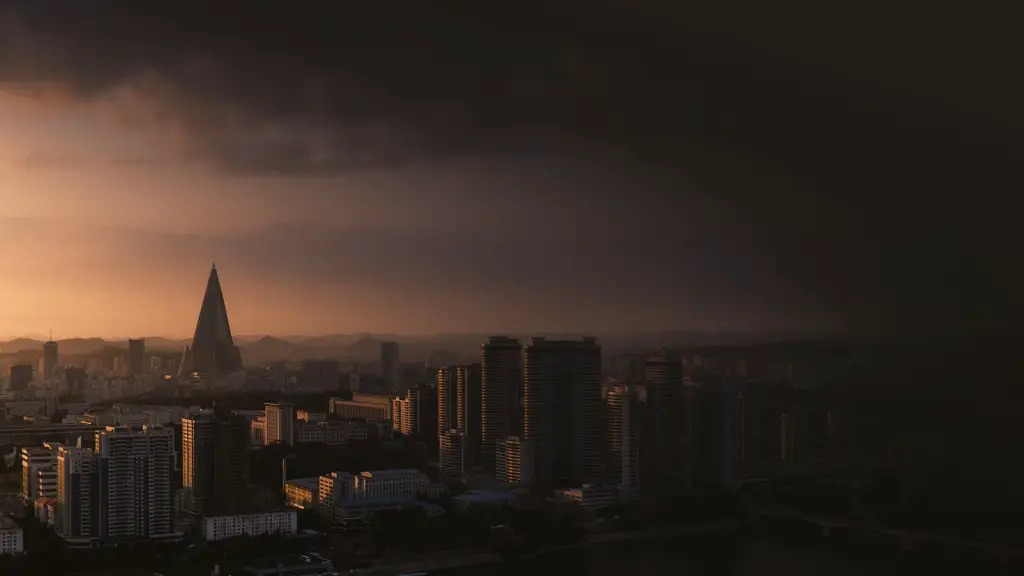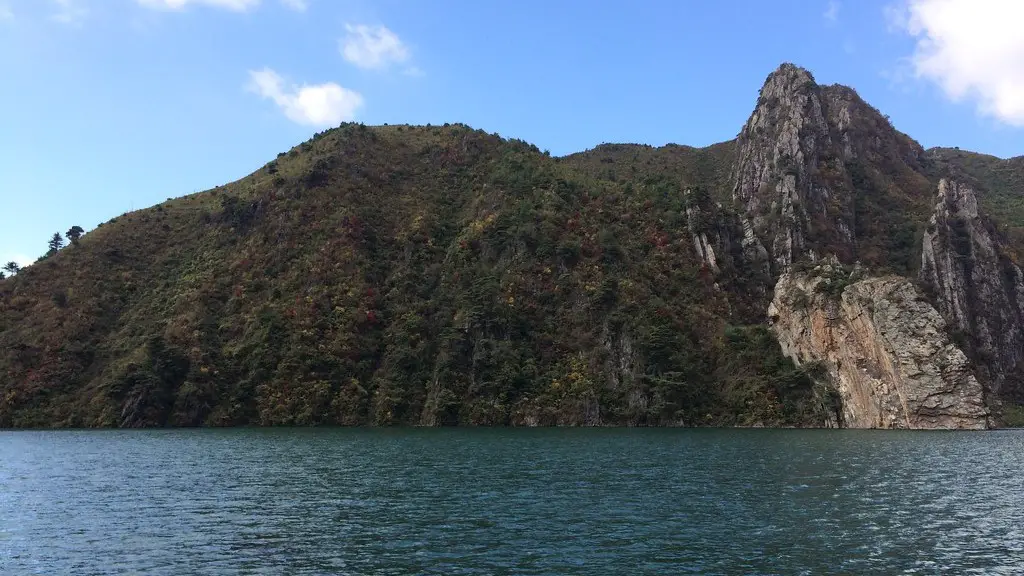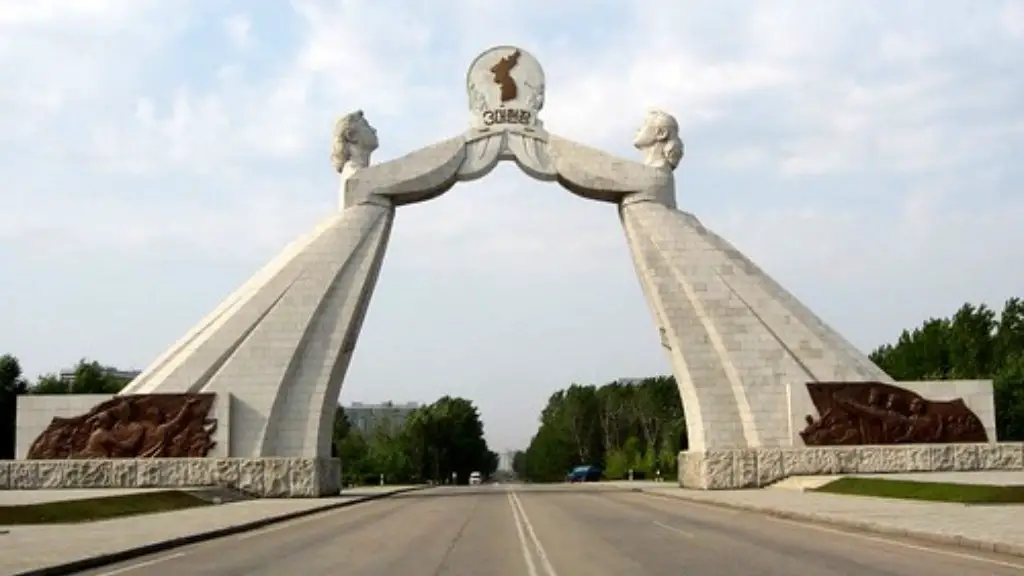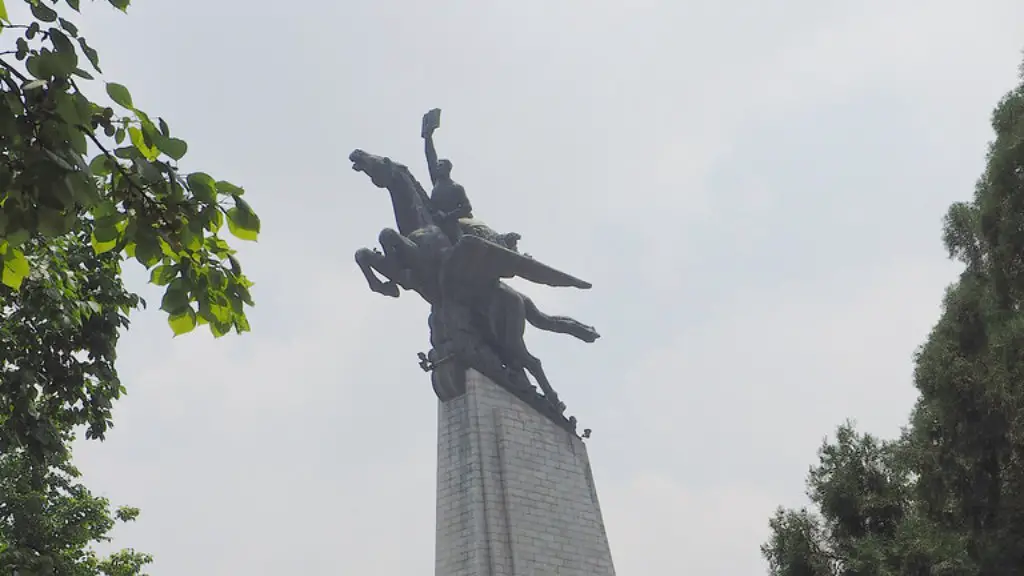North Korea has been known as one of the most secretive countries in the world since it was founded in 1948. All governmental powers are held by the leader, Kim Jong Un, and his inner circle. There is a hierarchical structure in place that determines who runs the government, and it is unlikely that changes will be made soon. This article will explain the structure of North Korea’s government, as well as its relationship with the international community.
At the top of North Korea’s political hierarchy is the leader, Kim Jong Un. He was appointed in 2011, after the death of his father, Kim Jong Il. Kim has full control of the government and thus, is in charge of the military, foreign affairs and economic policy. He is the deciding factor in all decisions, from minor to major.
Under Kim, there is a cabinet of ministers and other officials, who carry out the day-to-day running of the government. The ministers are appointed by Kim, and they make sure that all policies are implemented as per his wishes. It is believed that these ministers have some degree of autonomy, and are able to make decisions without Kim’s direct input.
North Korea is a one-party state, and its government is not formally associated with any other states. Kim may make representations to foreign leaders, but his legitimacy to do so is often questioned by the international community. North Korea has sought to attract foreign investment and open up its markets, but its relations with most of the world remain strained.
North Korea’s government is heavily centralized, and citizens have limited freedoms. Kim has been known to suppress dissent, and the country is deemed one of the least free countries in the world. The economy is highly regulated, and citizens are expected to comply with strict rules and regulations. The state maintains its power through oppressive tactics and an extensive security apparatus.
The government also controls the media and has a policy of censorship in place. Freedom of speech is restricted, and there is limited access to news and information from outside the country. This is done in order to protect the authority of the ruling class and prevent any form of dissent.
North Korea’s government is highly secretive, and it is difficult to gain accurate insight into its inner workings. Kim is in full control, and the structure of the government is unlikely to change in the foreseeable future. Despite its reticence, the international community still has to deal with the reality of North Korea’s political system.
Political Structure
North Korea is organized according to the principles of democratic centralism, and has a constitution that enshrines the leader’s authority. All citizens are subject to the Communist Party, and their loyalty is to the leader. The government is divided into three branches: executive, legislative, and judicial. The executive branch is headed by Kim, who appoints a Prime Minister as his chief of staff. The legislative branch is composed of the People’s Assembly and the Supreme People’s Assembly, which are charged with passing laws, ratifying treaties and making key decisions. The judicial branch is comprised of the Central Court, Provincial Courts and Local Courts, which enforce laws and handle legal disputes.
Foreign Relations
North Korea maintains diplomatic relations with a small number of countries, and its foreign policy is largely centred on its relationship with the United States. It has had a strained relationship with the US for decades, and its current relationship is characterised by mistrust and hostility. Despite this, the two countries have been able to achieve some progress in developing a diplomatic relationship in recent years. North Korea also maintains strong ties with its ally China, and is one of the most economically dependent countries in the region.
Military and National Security
North Korea’s national security apparatus is heavily militarised and it is the only country to have nuclear weapons. It has a large standing army, and its military forces are well-trained and equipped. Its military is largely seen as a deterrent against attack, rather than an offensive force. North Korea also has an extensive police state and border controls. Citizens are subject to relentless surveillance and strict controls on freedom of movement.
Political Culture and Attitudes
North Koreans are expected to be loyal to the government and display their allegiance in various ways. Political society is highly stratified, and those closest to the leader are favoured over the general population. Despite this, there have been some signs of discontent among citizens. The underground press is one outlet for citizens to express their grievances, and there have been increasing calls for reform from within the country.
International Reactions
North Korea is not recognised by many countries, and is subject to a series of economic sanctions which have had a severe impact on the country. Its nuclear weapons programme has been highly controversial, and the international community has strongly opposed it. Human rights organisations have criticised North Korea’s government for its extensive human rights violations, including political repression and torture. They have called on the government to implement reforms and respect the rights of its citizens.



